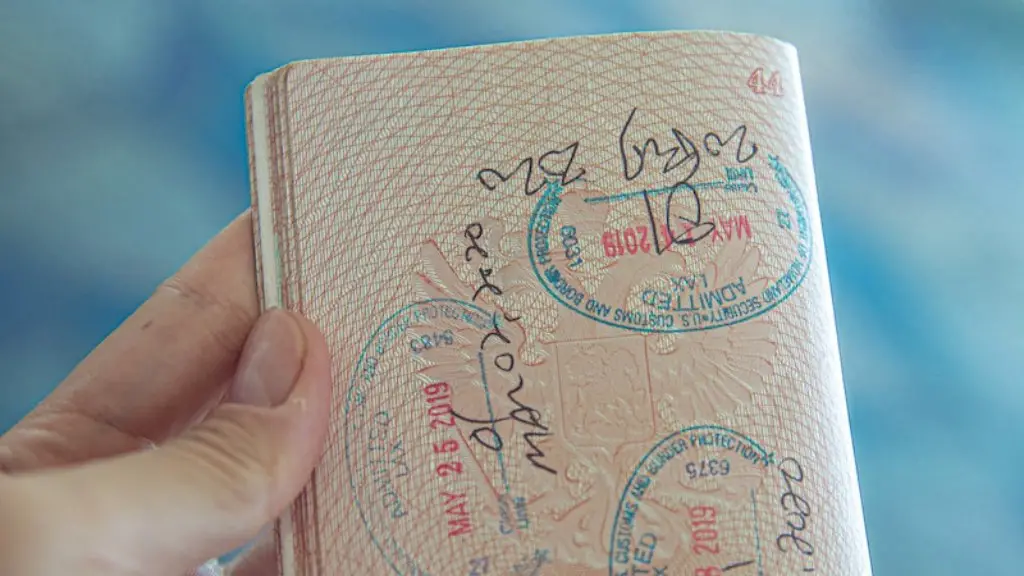Assuming you would like a brief introduction to the topic of travel insurance:
When you purchase travel insurance, you are essentially buying peace of mind. Should something go wrong while you are on your trip, you will be covered financially. Travel insurance can cover a wide range of potential problems, from cancelled flights to medical emergencies. Before you purchase a travel insurance policy, be sure to read the fine print so that you know exactly what is and is not covered.
Most travel insurance policies cover trip cancellation, interruption, delay, medical expenses, and lost or stolen luggage. Some policies also cover emergency evacuation and political evacuation.
What is usually covered by travel insurance?
A comprehensive travel insurance policy is one that covers a wide range of potential problems that could occur while you are traveling. These policies typically cover delays, cancellations due to sickness or death, lost luggage, and some emergency medical costs. This type of policy can give you peace of mind while you are traveling, knowing that you are covered in case of any unforeseen problems.
If you’re planning to travel, it’s important to be aware that your travel insurance policy may not cover you if your trip is cancelled or interrupted due to an event that was known, foreseeable, or expected. This includes events such as epidemics or fear of travel. Before you purchase a policy, be sure to read the fine print so that you’re aware of any potential exclusions.
Does travel insurance cover airline cancellation
If your flight is delayed, you may be covered by your travel insurance. Comprehensive travel insurance typically covers canceled flights that delay your trip for at least 3–12 hours. If your flight is delayed more than 12 hours, you may even qualify for trip cancellation coverage, depending on your plan.
If you’re worried about your trip being cancelled, consider buying trip cancellation insurance. It’s a relatively affordable way to protect yourself from financial loss if you have to cancel your trip for a covered reason. The most common covered reason is unforeseen illness, injury, or death of the traveler, a traveling companion, or a non-traveling family member. Other common covered reasons include terrorism, inclement weather, or a natural disaster, among others.
What is the most common travel insurance claim?
From the data that Godlin has collected, it seems that the three main reasons why people file for travel insurance claims are due to trip cancellations, medical emergencies while on the trip, and costs associated with trip interruptions. While these may not be the only reasons why people file claims, they are definitely the most common ones. It’s important to be aware of these so that you can be properly prepared when traveling.
When purchasing travel insurance, be sure to check the cover levels for medical expenses. Most policies will cover medical expenses as standard, but there can be differences in coverage levels and restrictions between insurers. Make sure the policy you choose will provide the coverage you need for your trip.
Can I cancel my flight and get a refund?
Airlines are required to allow consumers to cancel their reservation and receive a full refund without a penalty for 24 hours if the ticket is purchased at least seven days before the flight’s scheduled departure date and time.
If your flight is cancelled, you have the right to a full refund – including any other flights from the airline that you won’t use in the same booking, such as onward or return flights. Alternatively, you can request a replacement flight to get you to your destination.
When should you take travel insurance out
Taking out travel insurance as soon as you’ve booked your holiday is a good idea in case you have to cancel your trip. You may need to cancel your trip if you get injured or fall ill before you leave.
Travel insurance is often worth the investment for its potential to help reimburse you for hundreds of thousands of dollars of covered travel-related expenses. These expenses can include emergency evacuation, medical bills, and costs related to trip cancellation and interruption. Travel insurance can give you peace of mind while you’re traveling, knowing that you’re covered in the event of an emergency.
How many days before a trip can you cancel?
If you’re thinking about buying a ticket for a flight to or from the United States, it’s worth knowing that you can usually get a full refund (or change the ticket) if you do so at least seven days in advance. This can be a useful rule to know if your plans happen to change.
There are a few things to consider when compare the best travel insurance companies. The starting price is one factor to consider. Another is the coverage limit. Some companies offer more comprehensive coverage than others. Finally, it is important to consider the customer service and reviews when making a decision.
What are three things you should look out for when buying travel insurance
There are a few things to keep in mind when purchasing travel insurance. First, make sure to get the right duration for your policy. Second, ensure that all of your destinations are covered. Third, what is considered a pre-existing medical condition? Fourth, check for any dangerous activities that may not be covered by your policy. Fifth, make sure you can afford the excess. Sixth, all of your belongings should be covered. Lastly, report any type of theft immediately.
There are three types of travel insurance coverage: medical insurance, cancellation/interruption insurance, and luggage insurance.
Medical insurance covers medical expenses incurred while traveling. Cancellation/interruption insurance covers the cost of cancelling or interrupting a trip. Luggage insurance covers the cost of lost, stolen, or damaged luggage.
Does travel insurance cover doctor visits?
When traveling abroad, it’s important to make sure that your medical insurance will cover you for any outpatient services you may need, such as doctor’s office visits. Some foreign travel insurance companies don’t provide this coverage, so be sure to check before you purchase a policy. Keep in mind that visiting a doctor in another country may be different than what you’re used to, so it’s a good idea to do some research in advance.
Health insurance, on the other hand, covers preventive, routine and elective medical care in addition to emergency medical care.
Warp Up
There is no one definitive answer to this question as different policies cover different things. However, in general, travel insurance usually covers things like medical expenses, trip cancellation, lost or stolen luggage, and emergency evacuation. Some policies may also cover things like political evacuation, natural disasters, and financial default of a travel provider. It is important to read the fine print of a policy before purchasing it to make sure that it covers everything you need it to.
In summary, travel insurance covers a variety of potential risks that could occur during your trip. These risks can include everything from losing your luggage to getting sick or injured while traveling. While travel insurance can’t prevent all risks from occurring, it can help you recover financially if something does go wrong.





